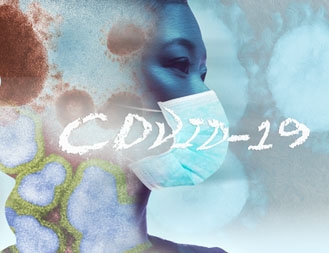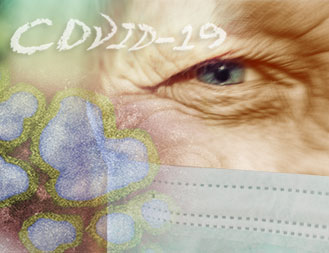COVID-19 Pandemic Edition
Why Older Adults are More Risk to Coronavirus?
By: Rosemarie Tamunday Casanova

The older adults are at a higher stake of risk during this coronavirus global pandemic outbreak. According to the studies, the first 20 people to die due to COVID-19 had an age of over 80 years. The average age of the first 500 people to get COVID-19 was approximately 60 years (Sarah Elizbeth Adler, March 14, 2020). This reveals that elderly people are more likely to be affected by this disease. Want to know the reasons?
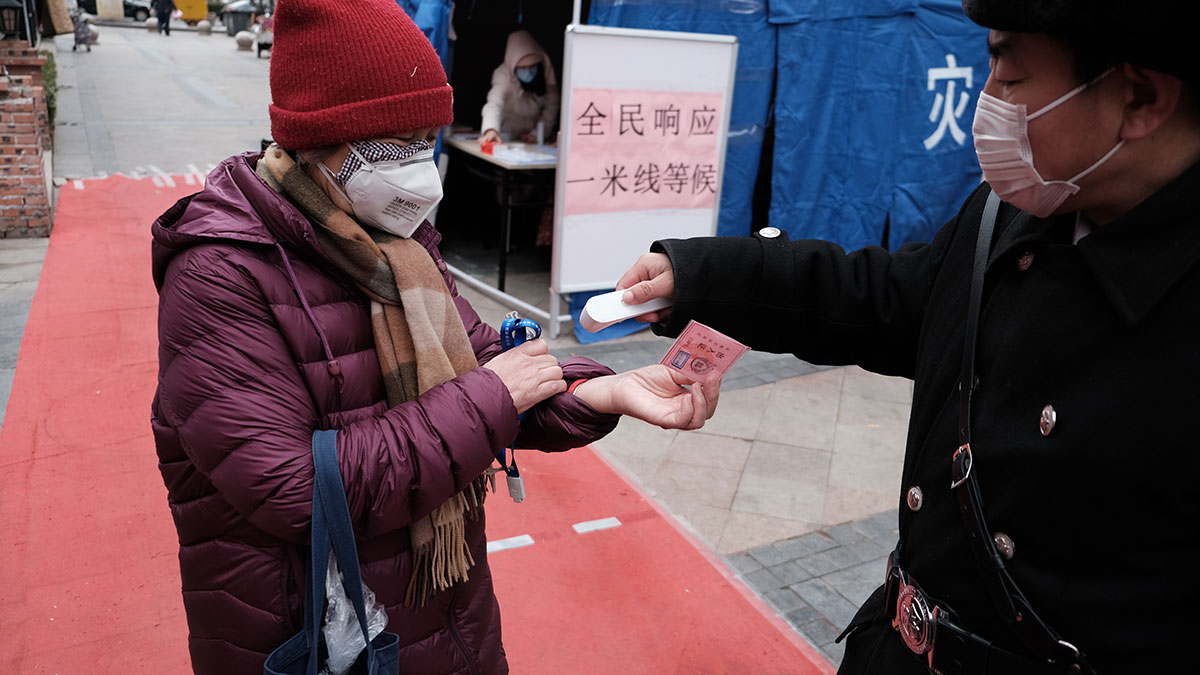
Elder people are more vulnerable to the COVID-19 because they have a weak immune system
So, basically, there are two major reasons. First, they already suffer from various diseases that often make their immune system much weaker to cope with such diseases as COVID-19. Secondly, the human body is like machinery, it works and works but it's efficiency decreases with the increasing tenure. In the later part of the age, the human immune system becomes weaker and weaker. It is not able to withstand any kind of harsh viral attack. According to research done on mice, the older nice have a greater risk of inflammation in the lungs as compared to the younger ones.
As age increases, the elasticity in the lungs decreases exponentially. So, when the SARS and MERS attack upon the lungs, it attacks where the air exchange occurs. The air passageway of the lungs that are already less flexible becomes narrower and narrower. Ultimately, the chances of organ failure become larger and larger (Sarah Elizbeth Adler, March 14, 2020).
People of older age most commonly have some cardiac diseases. According to the reports, about 10.5% of the patients who died due to the COVID-19 were suffering through cardiovascular diseases (Muhammad Majid, associate professor at McGovern Medical School, USA).
Older adults has a high fatality rate among COVID-19 cases according to study
According to the reports, 80% of the deaths have been reported of people aging over 65 years. About 70% of the people aging 85+ require hospitalization. While 60% of the people aging 65 years are being hospitalized.
About 6-29% of people older than 85 years of age are being admitted to ICUs due to COVID-19. On the other hand, about 11-31% of the people over 60 years of age are being transferred to the ICUs.
Approximately, 10-27% of the patients aging over 85 years are dead. While 4-11% of the people with an age of over 65 years have faced the wrath of fate (CDC, MARCH 21, 2020).
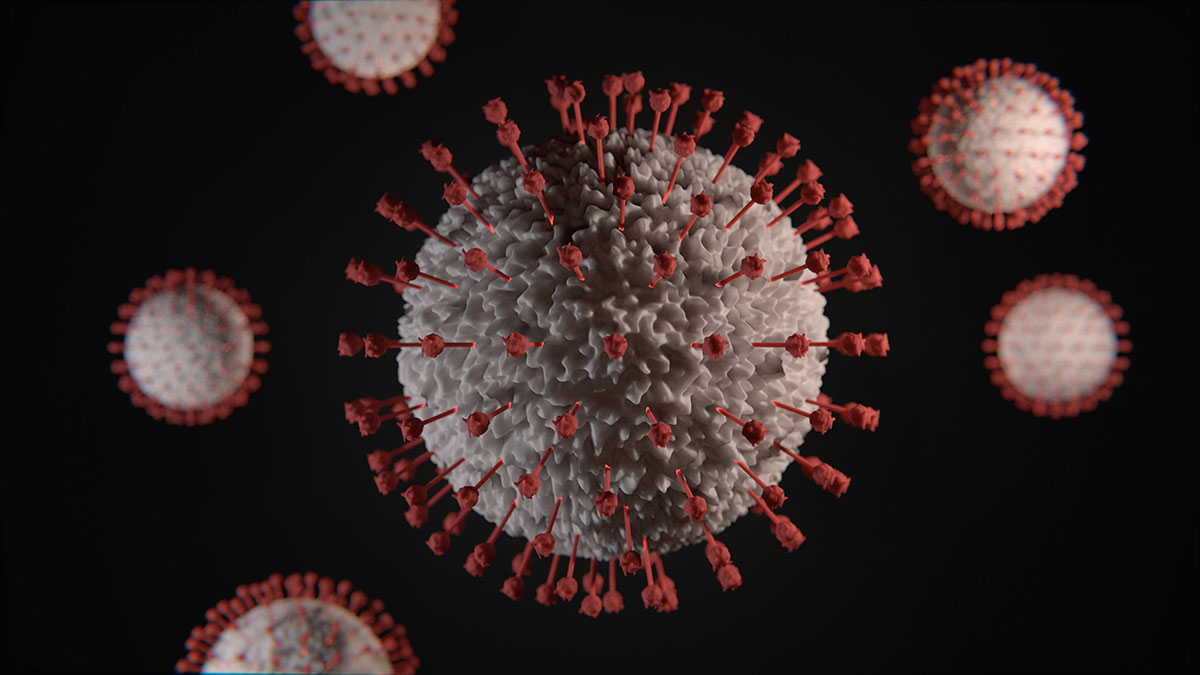
What is COVID-19?
Coronavirus Disease aka COVID-19 is a respiratory ailment. It is a type 2 SARS-COVID. It can be transmitted from one person to another. It is caused by the Novel Coronavirus. This virus first originated from Wuhan, China (CDC, March 18, 2020). It first came on the screens in the latter part of 2019, due to which it was named as COVID-19.
Most of the people often get encountered with the coronavirus somehow in life. But encountering COVID-19 is a genuine point to ponder upon. It starts a mild illness, resulting in mild cold, fever, dry cough, running, sore throat, and tiredness (WHO, 2018). It specifically attacks the lower respiratory tract. It gradually progresses and increases. If not treated in the beginning, it may turn into severe pneumonia and bronchitis and makes it harder to breathe and results in organ failure.
Coronavirus is supposed to be started by some animals. Then it transferred into the human and now it's being transferred from human to human. It is transmitted by either direct contact or droplets produced during coughing and sneezing. It can also be transmitted when an infected person touches something and later on a healthy person touches that thing and then touches his face, eyes, or nose. Then the healthy person is likely to get the virus (CDC, MARCH 4, 2020).
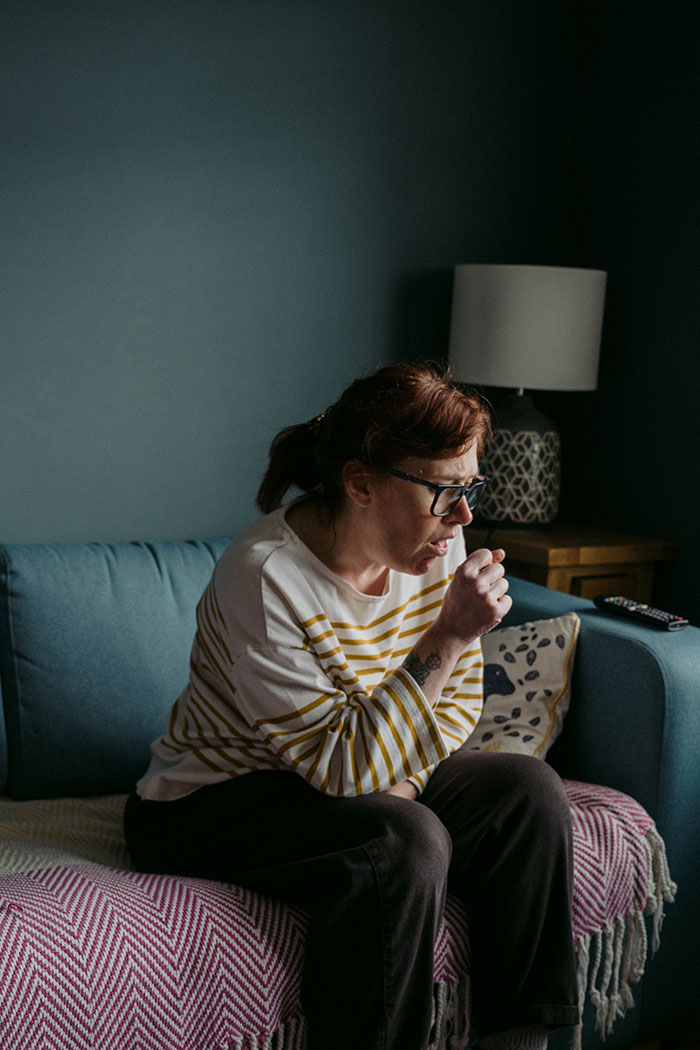
Symptoms of COVID-19:
After the incubation period of 2-14 days, COVID-19 shows some symptoms. These symptoms may include,
- Trouble in breathing as it will be becoming harder for the patients to breathe.
- The infected person may feel a higher pressure on the chest with pain. Or shortness of breath with severe pain in the chest.
- The lips and face may turn blue or grey due to the shortness of oxygen in the body.
These are the cases when the patient needs urgent medical attention of facilitation. The symptoms may vary but especially the older have to be extra vigilant about their health.
COVID-19 prevention and safety measures for older adults at home:
There is no specific vaccination for the COVID-19 till the date. The medications of HIV and EBOLA are being used as a possible cure for the COVID-19. But still, there is no hard and fast cure for this disease. So, the best cure is to take precautionary measures. Such as;
- Washing hands frequently
- Covering your nose and face
- Staying 6 feet away from an infected person

Let us discuss what are the measures that can be taken for ensuring the health and safety of the elderly at in home senior care in order to cope with this pandemic;
- Social Distancing
- At Home Deliveries
- Have a Good Diet
- Make the Use of Technology
- Get Involved in family
- Avoid Visiting the Doctor
- Use a Separate Washroom
- Use Disinfectants
- Wash Hands Regularly
- Stress Management
- Keep Check of the Health Status
- Stay Active
Social Distancing:
The first thing to keep in mind is that social distancing is not social isolation. So, the elders should keep a social distance despite being socially isolated. For Example, there is the risk of the spreading of the disease due to contact. Then what about saying HELLO! instead of shaking hands? The elders can have a very good time by communicating or talking to others by keeping the limit of 6 feet distance in their minds. They can also stand on the terrace and enjoy the beauty of nature instead of limiting themselves in the locked isolation room.
At Home Deliveries:
It's an undeniable fact that the daily necessities can never be ignored. Most of the older people need to have medicines and other grocery items. But due to this growing pandemic, they can't go outside to bring their thing. So, it is the best possible option to arrange some home delivery services so they don't have to go out and get exposed to the pandemic.
Have a Good Diet:
The immune system plays a vital role in order to stand against the virus. The older people with a stronger immune system are likely to be more successful against the COVID-19 pandemic as compared to those with weaker immune systems. The immune system can be strengthened with the help of a good diet. The diet gives essential nutrients to the body to fight with any disease so it's best to have an unprocessed and rich in nutrients food. The diets containing Vitamin C are more recommended for the strength of the immune system. Drinking an appropriate amount of water is also essential. It is recommended that an average older adult should have about 12 cups of water daily for the better transportation of the nutrients. Saturated Fats and fizzy drinks should be avoided (WHO, March 2020).
Make the Use of Technology:
Social distancing may prove to be a burden for older adults. they can get bored by staying at home. The use of technology can give them power and some time to enjoy. They must have Smartphones, Laptops, Personal computers so they find their lives purposeful. They can be able to chat with their loved ones so they don't feel isolated. They can play the games of their taste or they can read newspapers, journals, magazines, or editorials whichever they like. This idea will give them a lot of relief and independence.
Get Involved in Family:
Staying at home and self-isolation can lead to depression and anxiety. The best thing older adults can do is being involved in their families. They can spend some leisure time with their grandchildren or they can share the household work with their families. They can also resume their hobbies like gardening or reading. In short, being idle will lead to boredom and depression. So, they need to be busy or find something that makes them feel better.
Avoid Visiting the Doctor:
It's common amongst the older adults to have regular check-ups. But sorry to say, this is not the time for them to have the unnecessary checkups. They need to minimize their exposure to the pandemic. They should only consult their medical counselor in case of having some serious problem or health issue.
Use a Separate Washroom:
There isn't any doubt that the washroom is the filthiest place in the house. It is the home of various germs that can be the cause of various infections. Older adults are very sensitive to any kind of infection. Due to the COVID-19 outbreak, they can't afford any kind of infection that leads them to the hospital. So, they should ensure their separate washroom with the best possible cleanliness and sensitization facilities.
Use Disinfectants:
Disinfecting the house is the most important thing during this pandemic outbreak. As COVID-19 can also transmit from the surface. The older adults who are already on the stake of fate can't afford any type of risk. EPA recognized disinfectant must be used as it can kill the germs and bacteria in the house. The diluted bleach can play a vital role in disinfecting the house. The softer things should be washed thoroughly with some good quality soap or detergent. While the electronics should have a wipeable cover on them in case of not being covered, they should be cleansed with 70% alcohol pads (CDC, MARCH 28, 2020).
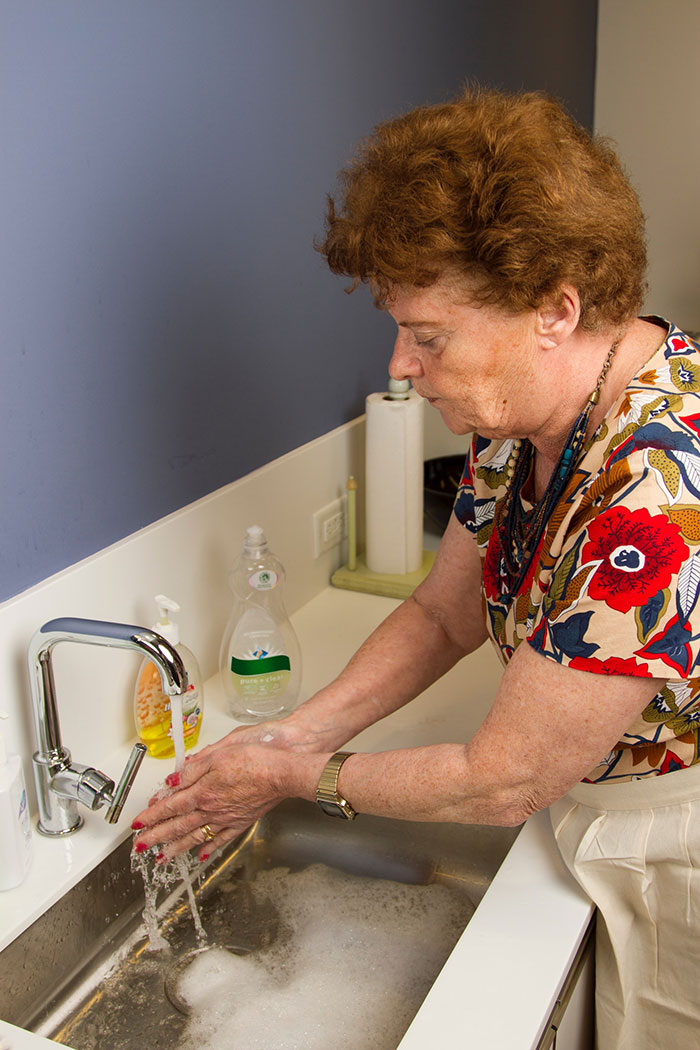
Wash Hands Regularly:
Washing your hands has become more significant during this global pandemic COVID-19. Older adults need to be extra conscious about their hygiene. They should wash their hands after regular intervals. It's common research that, COVID-19 virus stays alive on the surface for 20 mins. It is recommended to wash hands after every 20 mins, they should keep washing their hands for 20-30 seconds. In case, the water is not available, then they should sanitize their hands with 60% alcohol hand sanitizers. The older adults should make sure to wash their hands, after coughing or sneezing, after visiting outside, before and after meals, after using washrooms, after being in contact with animals or pets, and after being in contact with garbage.
Stress Management:
After the global outbreak, it has become so important for everyone especially the seniors to manage their stress. For this purpose, they should take it easily and normally. They should follow their regular routine. Like, waking up, having a shower, breakfast, and they should replace their job with some other amusing hobby that makes them feel relaxed. Like, some people enjoy cooking, while some like gardening, etc. They should take regular naps in order to feel more relaxed and satisfied.
Keep check of the Health:
For the seniors, it is necessary to stay at home and avoid any kind of unnecessary visit to the physician's clinic. In order to have a necessary medical check, they should have basic testing instruments within their access like, a glucometer to check the sugar levers, a blood pressure measuring apparatus, and an oximeter to check the oxygen level in their blood. They should also have a basic knowledge of their usage. They should also keep the primary medication in case of any medical problem.
Stay Active:
Your body has a right on you. In order to have a healthy life, your body should be in the best condition. During the fight with the pandemic COVID-19, the exercises should not be stopped. Everyone including older adults should have exercise at home. They should do regular and light gym activities to keep them active and fit.
Conclusion:
COVID-19 pandemic is a global situation. There is nothing to worry about it by taking precautionary measures. There is no doubt that older adults are sensitive, they have suffered the most and have more risk of getting the disease. Staying home is not the easiest task for them but they have to stay. There is a probability of them suffering. But after following these handy instructions, they can have a happy and safe life despite this outbreak.


